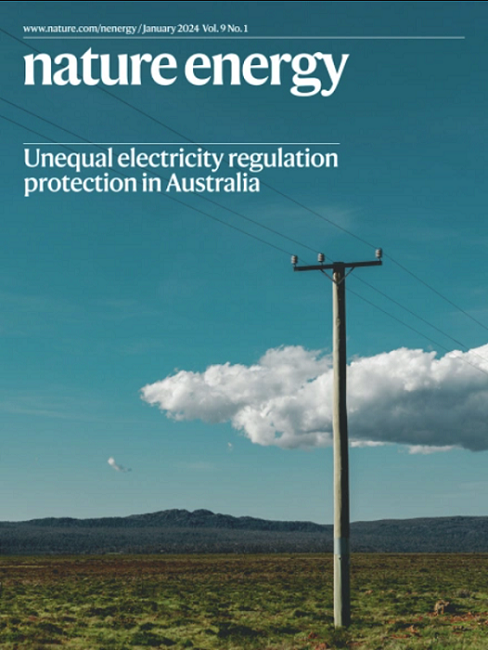Mapping the cost competitiveness of African green hydrogen imports to Europe
IF 60.1
1区 材料科学
Q1 ENERGY & FUELS
引用次数: 0
Abstract
Governments in many European countries have high hopes for cheap green hydrogen (H2) from Africa to decarbonize hard-to-abate sectors. Using geospatial levelized cost models, this study evaluates the economic feasibility of exporting green H2 in the form of ammonia from Africa to Europe under four realistic financing scenarios by 2030. Our findings suggest that without European policy interventions, green H2 from Africa remains prohibitively expensive with least costs from €4.2 kgH2−1 to €4.9 kgH2−1 depending on the interest rate environment. Using de-risking policy, we identify 214 locations in six African countries that may be competitive in the current interest rate environment, yet many of these face a challenging security situation casting doubt on long-term investments. Under optimal policy and interest rate scenarios, we find a least cost of €3.2 kgH2−1 in Mauritania by 2030. Overall, de-risking and strategic location selection are key to make African green H2 exports competitive on the global stage. A geospatial levelized cost model shows that green hydrogen imports from Africa to Europe remain uncompetitive without major policy support. De-risking policies and strategic site selection are key, but major risks remain.


绘制非洲进口到欧洲的绿色氢的成本竞争力
许多欧洲国家的政府对来自非洲的廉价绿色氢(H2)寄予厚望,希望它能使难以减排的行业脱碳。利用地理空间平准化成本模型,本研究评估了到2030年,在四种现实的融资情景下,从非洲以氨的形式向欧洲出口绿色H2的经济可行性。我们的研究结果表明,如果没有欧洲的政策干预,非洲的绿色H2仍然非常昂贵,根据利率环境的不同,最低成本从4.2 kgH2 - 1欧元到4.9 kgH2 - 1欧元不等。通过降低风险政策,我们在六个非洲国家确定了214个地点,这些地点在当前的利率环境下可能具有竞争力,但其中许多地点面临着具有挑战性的安全局势,使人们对长期投资产生怀疑。在最优政策和利率情景下,我们发现毛里塔尼亚到2030年的最低成本为3.2 kgH2 - 1欧元。总体而言,降低风险和战略位置选择是使非洲绿色H2出口在全球舞台上具有竞争力的关键。
本文章由计算机程序翻译,如有差异,请以英文原文为准。
求助全文
约1分钟内获得全文
求助全文
来源期刊

Nature Energy
Energy-Energy Engineering and Power Technology
CiteScore
75.10
自引率
1.10%
发文量
193
期刊介绍:
Nature Energy is a monthly, online-only journal committed to showcasing the most impactful research on energy, covering everything from its generation and distribution to the societal implications of energy technologies and policies.
With a focus on exploring all facets of the ongoing energy discourse, Nature Energy delves into topics such as energy generation, storage, distribution, management, and the societal impacts of energy technologies and policies. Emphasizing studies that push the boundaries of knowledge and contribute to the development of next-generation solutions, the journal serves as a platform for the exchange of ideas among stakeholders at the forefront of the energy sector.
Maintaining the hallmark standards of the Nature brand, Nature Energy boasts a dedicated team of professional editors, a rigorous peer-review process, meticulous copy-editing and production, rapid publication times, and editorial independence.
In addition to original research articles, Nature Energy also publishes a range of content types, including Comments, Perspectives, Reviews, News & Views, Features, and Correspondence, covering a diverse array of disciplines relevant to the field of energy.
 求助内容:
求助内容: 应助结果提醒方式:
应助结果提醒方式:


